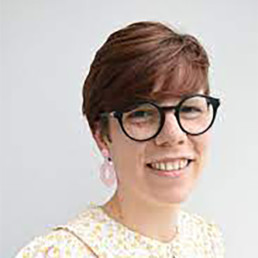
Written by Angharad Morgan
Angharad is a Secondary Social Science teacher in Newcastle and Gender Action Programme Lead. She has also recently taken on a Research Assistant role at Liverpool University, working on the Men4Change impact project. Alongside this, Angharad is undertaking her PhD in Education and Social Justice at Lancaster University. Her research uses feminist and queer theory to look at the role of male facilitators in challenging models of masculinity. Angharad is President of the NEU Newcastle District and will be Assistant Branch Secretary from September. Any spare time is spent outdoors with her 8-year-old daughter, and her ability to read and walk simultaneously saves a lot of time.
In 2019, at the age of 29 I decided to retrain as a teacher. I’d become a single mother at 26 and that slightly unexpected turn of events changed my life trajectory forever. I’d always been interested in education and teaching, something which perhaps I didn’t realise initially; from volunteering with classes in school to joining the Aimhigher programme whilst at university.
In my short time as a teacher, I had seen an apparent lack of justice, so this inspired me to act. When I received my acceptance letter onto the PhD in Education and Social Justice in 2022, I wept with joy and didn’t realise how much there would be to learn. It was a long way from my MSc in forensic psychology 11 years prior. I had the opportunity to write on a range of topics and my perceptions were challenged and understanding tested by each passing paper. Now, in 2025, I am halfway through what I have affectionately named “The Big One”, a modest 45,000-word thesis which will soon qualify me to be a Dr that responds in an emergency (albeit a social justice one).
My passion has always been gender justice, and I believed that I would spend my time working with women and girls and their experiences of navigating the education system. However, I had also spent a lot of time reading and talking about notorious influences and began to reflect on the types of masculinity they promoted. I noticed several programmes that worked with men take centre stage in recent years. I therefore wanted to gain an insight into how the male facilitators working in gender justice go about their work.
- How do they navigate models of masculinity?
- What does masculinity mean to them?
- How do they perceive themselves in a traditionally female-led environment?
- What motivated them to want to do that work?
- How do they recognise intersectionality?
Over the past 9 months I have been exploring the answers to these questions with 12 male youth facilitators working in the North of England. I used semi-structured interviews and photo-elicitation (an arts-based method in which participants were asked to provide a photo of what they perceived to represent masculinity) to explore facilitators experiences in the gender justice space. I was incredibly lucky with the participants’ insight and honesty.
As a teacher, it is important that any research I do has practical applications in an educational space. It’s all very well having theories, but they need to be practical and accessible to educators. In my recent talk at the RWBA’s Empowering Youth Conference I was asked some fantastic questions, but there was one that I didn’t get a chance to respond to, around the real-world application of my research. As my work has evolved, I’m beginning to understand it’s possible impact and application in education in the following ways:
- The importance of collective action for gender justice to truly be a reality. All educators need to be equipped to respond to challenging topics and feel confident to embed this in their practice. This means that teacher training and universities need to step up and prioritise discussions of gender, sexuality, mental health and healthy relationships with students (and colleagues!).
- Relationships with young people based around their exploration, questioning and critical thinking are key to opening up conversations. Many educators would aspire to this, but there needs to be an environment and culture within education that allows this to happen. How can educators be given the capacity to create these learning spaces?
- Although my research has focused on the role of male facilitators, over 75% of staff in schools/nurseries are women. Therefore, we need to identify how we can continue to have these open conversations with young boys, whilst also recognising that many of these conversations will be facilitated by women. Many schools do not have the budget to bring in external facilitators and male teachers cannot be expected to be experts on these topics. Therefore, female educators need to be engaged in these discussions as well.
- The importance of identity, belonging and reflection. My participants vocalised how this work has made them reflect on their positionality. As educators, we must reflect on our own positionality in our educational space, considering what brought us there. We can also explore our influences and how this impacts how we respond to young people and colleagues around us. It can be easy in these discussions to ignore the differing identities and experiences of the people we teach and work with.
I’m looking forward to further analysing my interviews over the next year and I hope that my work will add further insight into how we can continue to grow the gender justice movement at a time when these discussions are being silenced.

